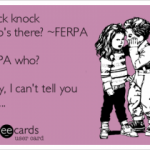“We will never forget.” This sentiment is nearly universally applied in remembrance of the September 11 anniversary. But what does it mean? Since most do not personally know someone who perished, it is doubtful it is intended to memorialize a particular individual. Rather, it is intended as a warning to those that attacked us, “I will never forget how you hurt us; you will pay for what you have done.” It is a passive-aggressive remembrance. But when a bee stings someone perhaps it is more fruitful to try understanding why they got stung than to wage war against the hive. Yes, the bee stung me and that rightfully makes me angry, but, perhaps my buddy should not have thrown that rock at the hive five minutes earlier. Maybe, just maybe, that had something to do with it. Sometimes we pay the price for the misdeeds of others. It is not fair. It is not right. We can’t change the past. But we can change the future by learning from the past.
Instead of being led by the nose, we need to start asking the questions we’re not supposed to ask. If the 9-11 assailants did what they did because they hate us for our freedom, then why have there not been attacks on every “free” western democracy for the past two hundred years? For some reason the history books seem to be silent on jihad-style attacks in the 1920’s or 1870’s. I wonder why. It is odd that the “modern” notion of Islamic extremist only developed post 1950’s. Let’s not forget that the US and UK governments played a hand in the 1953 Iranian coup d’état that saw the democratically elected Mosaddegh ousted in favor of a puppet dictator (the Shah). Let’s not forget that the Middle East was arbitrarily carved up by European powers in the wake of World War I and II. Let’s not forget Israel was created in 1948 by the UN by forcible removal of people from their homes. There is no single cause to this mess, but, that is the nature of an abusive relationship. A multitude of transgressions, large and small, will after many years culminate in a response. An abused spouse may long endure abuse until finally one day they strike back, violently. Such events do not occur in a vacuum.
To be clear, this is not “blaming America,” unless you subscribe to the fallacy that America is its government. Consider: my neighbor repeatedly tosses his dog’s poop over his fence into another neighborhood despite their protestations to cease such behavior. Then one day those neighbors toss a grenade back which also results in my house being damaged. I’m going to darn well blame them both! My neighbor’s actions precipitated this response. Stating that my neighbor played a hand in those events does not mean I’m disloyal to my neighborhood and blaming my neighborhood. A member of the group is not the group itself. Repeat after me: blaming our government is not blaming America. That is the lesson we should never forget: the actions of those we elect have consequences.









